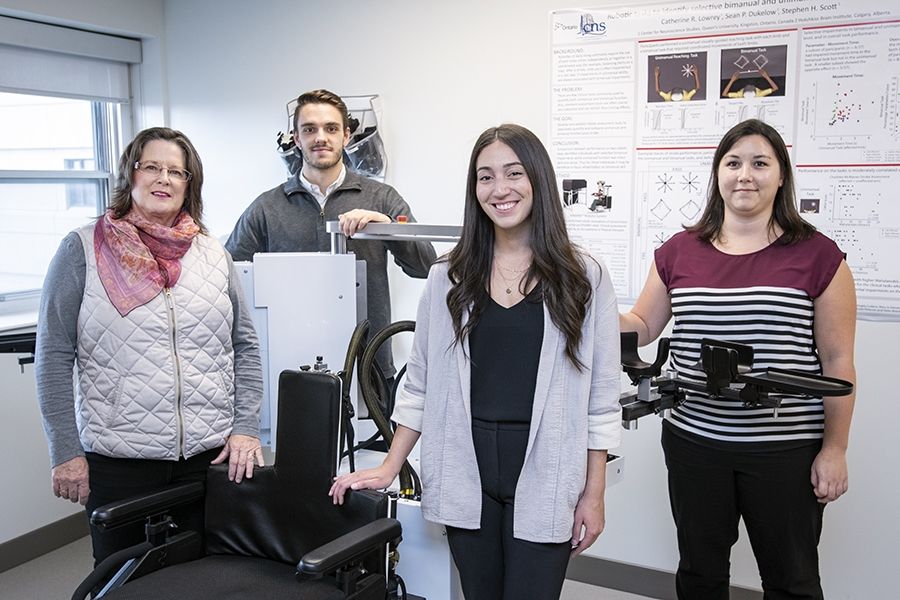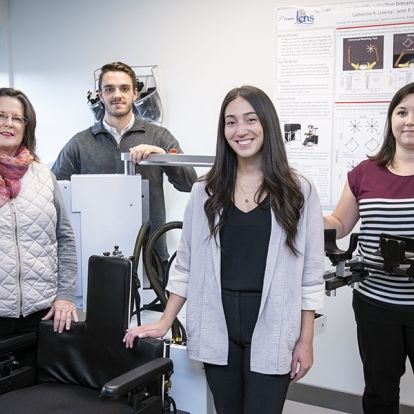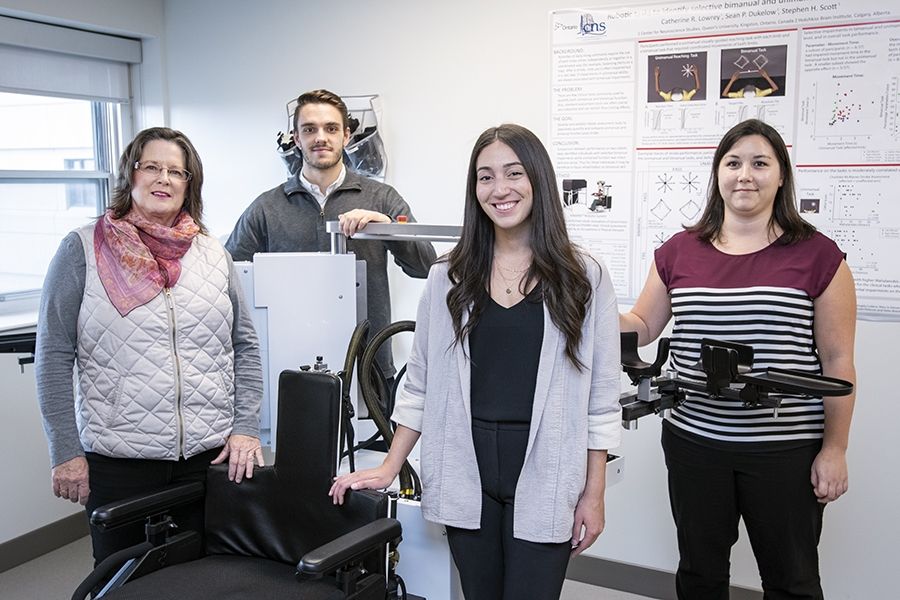
Two recent Queen’s University graduates are addressing a problem that has plagued clinical researchers for years: how to make it easy and convenient for ordinary citizens to get involved in research.
Luc Pelletier and Brooke Resendes are co-founders of Research Stream, an online platform that connects researchers and people who are interested in taking part in research studies.
At least 80 percent of research studies are delayed or cancelled because finding participants is not successful, says Pelletier, noting that the traditional methods of ads and posters are expensive, time-consuming and hard to quantify. “Until now, there was no streamlined way to get involved in research.”
So Pelletier and Resendes did their own research, connecting with more than 100 researchers and dozens of research participants to test out their idea. “Participants told us they want something online – they go online to book other things, so why not research?” Pelletier says.
They were assisted by the Centre for Advanced Computing, which advised them and securely hosts their site. Sylvia Robb, a clinical research coordinator in Queen’s University’s Department of Anesthesia & Perioperative Medicine, and Adrian Storm, who was a patient experience advisor at Kingston Health Sciences Centre, gave them valuable insights as well. “We learned that research is not patient-friendly enough,” Pelletier says.
Launched in 2018, Research Stream was immediately embraced by both scientists and the public, they say. They’re currently working with researchers at Queen’s University and its hospitals but eventually hope to expand to institutions across Canada.
“We now have 400 people in contact with researchers, and we’ve surpassed 1,200 accounts in our database,” he says.
Research groups post summaries of their projects, including who’s doing them, details of the study, and who’s eligible. People can scan the studies, and connect with a researcher by registering on the site. (Research studies must have research ethics approval before they can be posted.)
“It was so easy to do,” says Research Stream participant Susan Robertson, who was new to the idea of engaging in research. “It provided me with enough information to help me make the decision to take part. The email form is short and simple, and within a day I got an email from the researcher.”
So far she’s taken part in two studies at Kingston Health Sciences Centre. One study, as a “healthy subject”, was to test her coordination and reaction time using her eyes, hands and arms in the Kinarm robotic system. She’s now taking part in a different study, this one lasting four months.
While research studies often look at individuals with specific conditions or diseases, people like Robertson are crucial to the research process because they provide the “healthy” baseline data that researchers need for comparison purposes when studying a health disorder.
Robertson does it because she’s interested in research. “I feel like I’m helping, and I think it will enable me to better understand my own health,” she says.
“Recruiting individuals to participate in research studies can often be difficult and time-consuming. Research Stream offers a highly convenient and accessible option for both researchers and research participants,” says Dr. Steven Smith, (Interim) Vice President, Health Sciences Research, KHSC, (Interim) Vice-Dean Research, FHS, Queen's University and (Interim) President & CEO, KGHRI. “Congratulations to these Queen’s entrepreneurs! They’re a fantastic example of how our university and hospitals work together to advance health research and innovation.”
Pelletier and Resendes are encouraged by the results of their work so far. “We’re seeing a shift in perception about research,” he says. “We’re taking away the fear factor, and also educating – many people don’t realize that healthy participants are important. Our message is, research is an opportunity, and there’s a study for you!”
Gallery


Research participant Susan Robertson. left, with Research Stream co-founders Luc Pelletier and Brooke Resendes, and research assistant Simone Appaqaq



